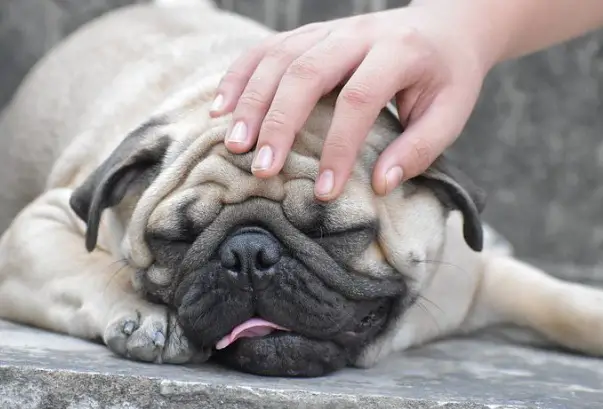14 Most Common Health Problems For Chihuahuas

Although chihuahuas are among the most popular dog breeds, it’s crucial to be aware of their potential health risks.
We’ll examine some of the most typical health problems that Chihuahuas can experience in this blog post, along with steps you can take to make sure your Chihuahua stays as healthy as possible.
Hence, whether you already own a Chihuahua or are considering acquiring one, stay reading to learn more about the most common health issues that Chihuahuas encounter and how to avoid them.
Common Health Problems For Chihuahuas
Here are some common health problems for Chihuahuas, including their symptoms and treatment options:
Heart Murmurs
Chihuahuas frequently experience heart murmurs, which can be a sign of underlying heart problems.
During a veterinary examination, a heart murmur is an unusual sound that could point to an issue with the heart’s structure or function.
Weakness, exhaustion, coughing, and shortness of breath are possible symptoms.
In addition to surgery in extreme situations, treatment options may include medication to control symptoms and enhance heart function.
Collapsed Trachea
As the cartilage rings in the trachea collapse, it becomes difficult for the dog to breathe, which is known as a collapsed trachea.
Chihuahuas and other small-breed dogs frequently have this health issue.
Several things, such as heredity, weight, and respiratory infections, can contribute to its development.
Coughing, wheezing, and breathing issues may be symptoms.
In addition to surgery to strengthen the trachea, treatment options may also include medications to reduce inflammation and open the airways.
Patellar Luxation
A disorder known as patellar luxation occurs when the kneecap shifts, resulting in pain and discomfort.
Chihuahuas and other small-breed dogs frequently have this health issue.
Many variables, including heredity, trauma, and usage, can contribute to its development.
Symptoms can include a hopping or limping gait, trouble moving the affected leg, and limping.
Depending on how severe the problem is, different treatment methods may be available.
Physiotherapy and pain medications may be used to treat mild cases.
Surgery to realign the kneecap may be necessary for more severe situations.
Dental Issues
Due to their small jaws and overcrowding of teeth, chihuahuas are renowned for having dental problems.
Tartar accumulation, gum disease, and tooth decay can result from this.
Bad breath, sore gums, and difficulty eating are just a few symptoms.
In order to keep Chihuahuas’ teeth clean, it’s important to wash them frequently and provide them with toys or dental chews.
Frequent dental examinations by a veterinarian can also aid in the prevention and management of dental problems.
Hypoglycemia
When a dog has hypoglycemia, their blood sugar levels fall too low, which results in fatigue, sluggishness, and seizures.
Due to their small size and quick metabolism, Chihuahua puppies are especially prone to this.
Several things, such as stress, disease, and poor diet, might contribute to it.
A high-sugar solution or glucose supplements may be given, the dog’s food and feeding routine may need to be changed, and close blood sugar monitoring may be necessary as a form of treatment.
Obesity
Chihuahuas are prone to obesity, which can cause a number of medical issues like heart disease, diabetes, and joint pain.
Many things, such as overeating, inactivity, and heredity, can contribute to obesity.
Breathing issues, lethargy, and mobility issues are some signs of obesity in Chihuahuas.
A particular food regimen, more exercise, and weight control programs are a few possible treatment alternatives.
Eye Problems
Chihuahuas are prone to cataracts, glaucoma, and corneal ulcers, among other eye conditions.
Genetics, trauma, or infection are a few possible causes of these eye conditions.
Eye discharge, redness, cloudiness, and changes in behavior or level of activity are just a few symptoms that might occur.
Medication to treat symptoms, eye drops, or surgery to fix the problem are all possible treatments.
Legg-Calve-Perthes Disease
The hip joint is impacted by Legg-Calve-Perthes disease, which results in degeneration and eventually arthritis.
Toy-breed dogs, including Chihuahuas, frequently have this health issue.
Genetics or hip joint trauma may be at blame. Lagging behind, having trouble moving, and stiffness are possible symptoms.
Physical therapy, pain management medications, and, in extreme circumstances, hip replacement surgery are all possible forms of treatment.
Allergic Reactions
Food, pollen, flea bites, and other factors can cause allergies in chihuahuas.
There may be respiratory symptoms like coughing and sneezing as well as skin signs like itching, redness, and irritation.
Medication to control symptoms, allergy testing to identify the allergen, and avoidance of the allergen when practical are all possible forms of treatment.
Liver Shunt
As blood flows around the liver, a condition known as liver shunt occurs, which causes toxins to accumulate in the bloodstream.
Many symptoms, such as nausea, diarrhea, and neurological issues, may result from this.
A hereditary disorder called a liver shunt is more prevalent in several breeds, especially Chihuahuas.
Medication to treat symptoms, special diets, and in extreme situations, surgery to rectify the irregular blood flow are all possible forms of treatment.
Heart problems
Heart problems in chihuahuas, like mitral valve disease, which can cause heart failure, are common.
Coughing, exhaustion, and breathing difficulties are symptoms.
Medication is used as part of treatment to control symptoms and halt the spread of the illness.
Seizures
Chihuahuas are susceptible to seizures for a number of reasons, including heredity, brain damage, and metabolic abnormalities.
Muscle spasms, unconsciousness, and drooling are symptoms.
Medication to prevent seizures is part of the treatment, along with locating and addressing triggers.
Gastrointestinal problems
Gastrointestinal problems in chihuahuas might include vomiting, diarrhea, and constipation.
They can be brought on by a number of things, including poor diet, parasites, and medical disorders.
Abdominal pain, appetite loss, and dehydration are symptoms.
The course of treatment entails determining the root of the problem, dealing with it, and providing supportive care, such as water and medicine.
Ear infections
Chihuahuas have tiny ears that can become infected due to moisture and material buildup.
Itching, odor, discharge, and redness are symptoms.
Regular ear cleaning and antibiotics are used as treatments to get rid of the infection.
How to take care of a sick Chihuahua
Patience and compassion are necessary while caring for a sick Chihuahua.
Your Chihuahua has to be kept warm and dry because they are prone to being cold rapidly.
Make sure to give your Chihuahua a peaceful and comfortable space to rest in.
Also, until they feel better, you should refrain from offering them any food or sweets.
Moreover, it’s critical to keep an eye on your Chihuahua’s behavior and watch for any changes in hunger, vigor, or other behaviors that could indicate illness.
Take your Chihuahua to the vet as soon as possible if you suspect they are ill.
The problem can be identified and treated appropriately by your veterinarian.
Moreover, make sure your Chihuahua is getting enough water and relaxation.
Make sure they are receiving enough activity, and make sure they have access to plenty of fresh water.
You might try feeding your Chihuahua by hand if they are having trouble chewing their food.
This can encourage a sick dog to eat while also providing comfort.
Learn more about Chihuahua separation anxiety.
Signs Of A Sick Chihuahua
Weakness, lethargy, confusion, decreased appetite, excessive drinking or urinating, vomiting or diarrhea, poor breath or drooling, seizures, bloody urine, trouble feeding, and extreme exhaustion are symptoms of a sick Chihuahua.
Hydrocephalus can also cause seizures, poor coordination, a bloated head, and a variety of other neurological issues in Chihuahuas.
Take your Chihuahua to the vet as soon as you can if you see any of these symptoms in them.
Conclusion
In conclusion, it’s critical to be aware of the typical health issues Chihuahuas may experience and to take the necessary precautions to make sure your dog maintains optimal health.
Being proactive when it comes to your Chihuahua’s health is crucial, from regular exercise to regulating their nutrition and keeping an eye out for any potential symptoms.
You can make sure your Chihuahua has a happy, healthy life by being aware of the typical health issues Chihuahuas can encounter and by taking the appropriate precautions to prevent them.


![Head Trauma in Dogs [Signs, Causes & Treatment] Head Trauma in Dogs](https://petcreeks.com/wp-content/uploads/2023/12/pexels-mikhail-nilov-7469230.jpg)


![How Dogs Get Heartworm [2 Possible Ways] How dogs get heartworm](https://petcreeks.com/wp-content/uploads/2021/07/how-do-dogs-get-heartworm-768x644.jpg)
